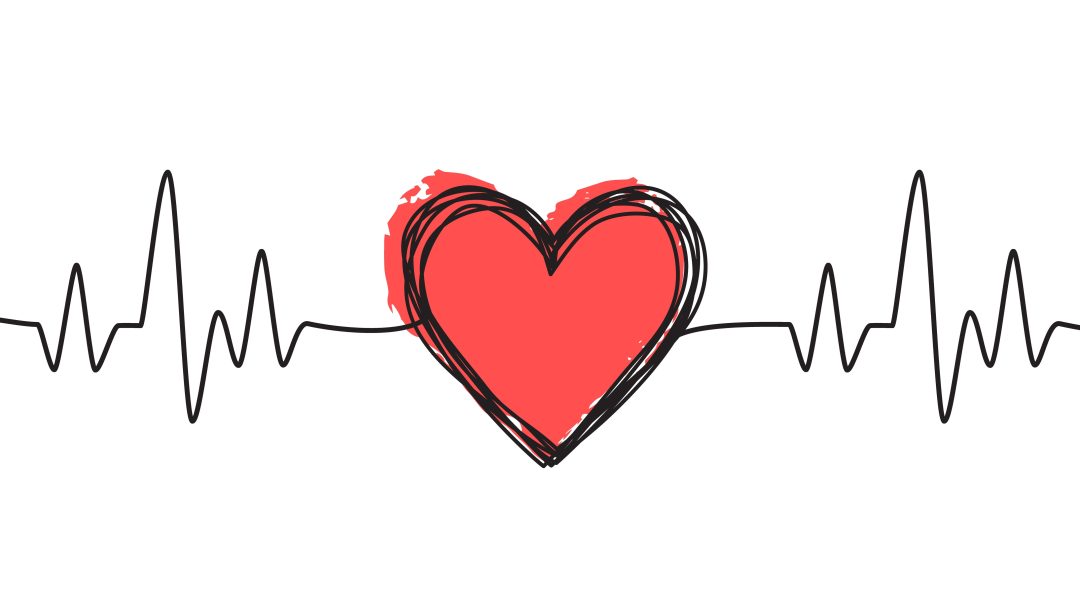Before you even get into work in the morning, you may be putting extra stress on your heart and not even know it. February is American Heart Month and an ideal time to take a deeper look at your own heart health and simple steps you can take to improve your ticker.
KEEPING YOU ALIVE AND HEALTHY
Your heart is part of your circulatory system or cardiovascular system that pumps blood to your lungs to get oxygen and then moves this oxygen-fresh blood out to the rest of your body. More than 60,000 miles of blood vessels transport 1 1/2 gallons of blood through you every day!
Your heart and lungs work in tandem to keep you alive and healthy. Which means what you breathe can affect your heart. So can what you eat, how you sleep and if you exercise. And those dust bunnies gathering in your office may too.
Heart disease also known as cardiovascular disease (CVD) is the leading cause of death in the United States, but it can be prevented. The American Heart Month team and major medical groups including the American Heart Association and Mayo Clinic list a number of strategies for boosting your heart health wherever you live, work and play. Here are a few of their heart-healthy tips:
- Eat nutritiously. To help protect your heart and lower cholesterol and blood pressure, limit your intake of saturated fats, salt, sugar, and alcohol. Boost your consumption of vegetables, fruits, lean meats and fish.
- Skip tobacco and vaping use. Chemicals in tobacco products can damage your heart and blood vessels. Plus, exposure to cigarette and e-cigarette/vaping smoke reduces oxygen in your blood, which makes your heart work harder.
- Get moving daily. Regular physical activity can help prevent conditions that strain the heart including high blood pressure, diabetes and high cholesterol.
- Stay at an optimum weight. Carrying around extra pounds—especially around the midsection—can heighten the chance of developing heart disease.
- Catch enough sleep. A lack of good quality sleep can increase the likelihood of obesity, diabetes, high blood pressure and heart attack. Most adults need a minimum of seven hours of sleep a night.
- Reduce your stress. Instead of overeating and drinking to deal with stress, better options include exercise and relaxation or meditation routines.
- Keep updated on health screenings. Your health care provider can set a screening schedule for you to stay on top of your cholesterol levels, blood pressure and diabetes risks.
Even Younger Workers Are Affected
Even if you stay fit and healthy outside of work, airborne and chemical hazards in the workplace can also affect your heart health. The CDC reports that “more than half of those with CVD (53%) are less than 60 years old, and circulatory diseases are a leading cause of death and permanent disability among workers.”1 You don’t have to be older with known health ailments to succumb to heart disease because of your occupation.
In the workplace, some of the external factors or occupational exposures that can affect your heart or even cause cardiovascular disease include:
- Carbon monoxide (CO)
- Carbon disulfide (CS2)
- Certain chemicals and solvents
- Heavy metals (lead, arsenic/arsine, cobalt)
- Particle pollution
Catch a Breath of Fresh Air
Particle pollution or particulate matter (PM) is a collection of minute pieces of liquids or solids on the air. Exposure to airborne pollution at work can also include contaminated particles from furnaces, boilers, vehicle exhaust and chemical spraying.
Research shows that even short-term exposure to particulate pollution can increase the risk of heart attacks and other types of heart disease. In addition, everyday dust can lead to breathing problems such as coughing, wheezing and asthma and then result in heart complications. In winter months, heat is blasted throughout the office and little fresh air is circulated in the building. Dust starts to settle everywhere—from your desktop to carpets to windowsills and in hidden corners. If dust is present, your lungs work harder and so does your heart.
How to Protect Yourself
If your work environment exposes you to dust and or harmful chemicals, talk with your boss about preventative steps to protect your health. The Occupational Health and Safety Administration (OHSA) regulates environmental safety standards, and these simple steps may be needed:
- Freshen the air. To help clear out dusty areas, open windows or turn on fans to circulate old air with the new.
- Put on protective gear. Defend your lungs by wearing facemasks and goggles when you enter areas with extra dust, debris and chemical fumes.
- Remove the dust effectively. You can sprinkle water on heavy dust areas to prevent
particles from spreading. Wiping up the dampened dust with a microfiber cloth instead of a paper towel will help trap the debris. The best solution is to let commercial cleaning services experts regularly remove the embedded dust from carpets, workstations, vents, kitchen spaces and throughout the entire workplace.
American Heart Month is an invitation for you to be aware of heart-healthy preventatives in both your personal and work life. Our Midwest Maintenance cleaning and janitorial services teams are serious about protecting your ongoing heart health too. In getting to the heart of the matter, we are passionate about clean—for everyone, every day and every month of the year.

